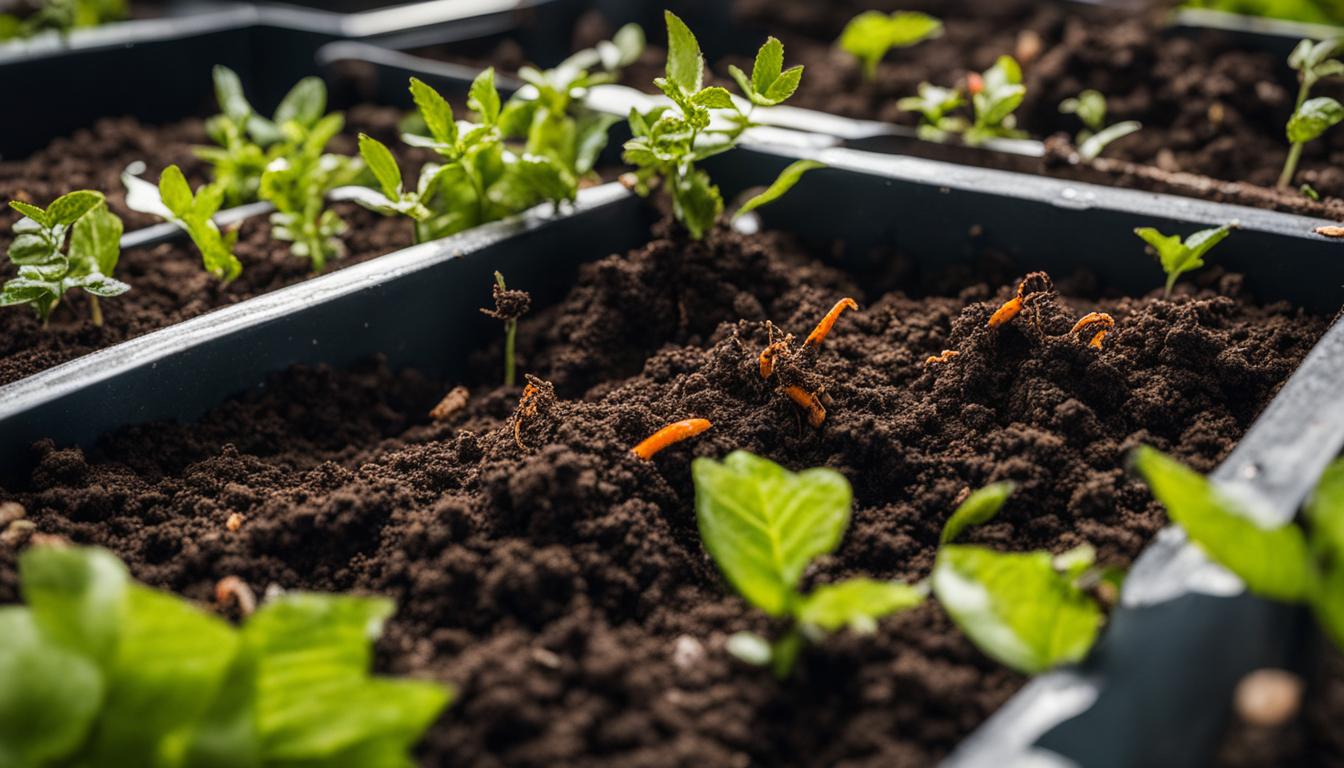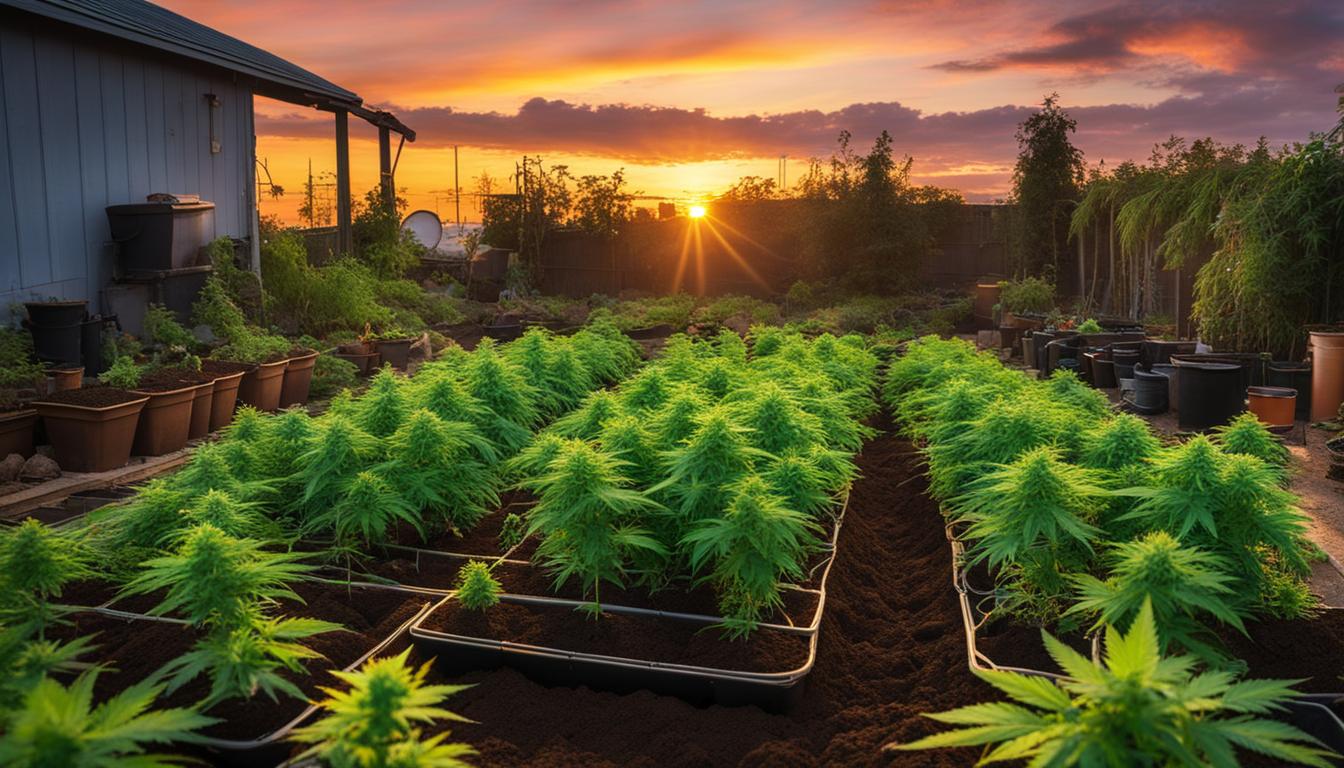If there’s one thing I’m passionate about, it’s gardening. There’s nothing like nurturing plants and seeing them thrive under your care. Lately, I’ve been on a mission to take my gardening game to the next level, and let me tell you, it’s been a wild ride!
I’ve been exploring new techniques and products, from super soil additives to organic farming methods to microbial inoculants. I’ve discovered something unique: the key to achieving the most vibrant, healthy, and productive soil is prioritizing using organic soil nutrients, conditioners, and nutrient-rich supplements. Trust me, once you see the incredible results that these products can deliver, you’ll never want to go back to your old gardening ways!
The Rise of Organic Soil Amendments
Super Soil is an organic soil amendment that reduces the need for liquid nutrients by providing a highly amended, nutrient-dense growing medium. It contains natural compost additives like worm castings, bone meal, and bat guano that promote vigorous plant growth organically. However, gardeners must know the extended “cooking” time required for Super Soil to “activate” and its potential to overwhelm plants with nutrients if not appropriately diluted, and acknowledge that yields might differ from synthetic nutrient applications.
Last update on 2025-03-28 / Affiliate links / Images from Amazon Product Advertising API
Fertilizer Enhancers: Giving Your Plants the Edge
Fertilizer enhancers like mycorrhizae, blood meal, and kelp meal improve soil fertility and plant growth. A Super Soil recipe uses specific nitrogen, plant structure, and solid development components to create an ideal growth environment. It’s used with regular soil to prevent nutrient burn and provide a long-term nutrient supply. This reduces the need for synthetic alternatives and enhances plant growth.
Understanding the Role of Beneficial Soil Microbes
Beneficial soil microbes, including bacteria, fungi, and protozoa, are potent allies in organic agriculture. These microorganisms boost soil health by aiding nutrient breakdown and assimilation by plants, contributing to the biological control of pests and diseases, and promoting robust plant growth. Amendments like compost and compost tea introduce these microorganisms into the garden, though brewing compost tea requires adequate management to avoid pathogen proliferation.
Last update on 2025-03-28 / Affiliate links / Images from Amazon Product Advertising API
Soil inoculants aim to enrich the soil’s biological profile, further enhancing plant nutrient uptake and crop quality. Implementing beneficial microbes through amendments is crucial for fostering a dynamic and self-sustaining ecosystem within the soil, which aligns with regenerative farming practices focused on increasing organic matter and carbon sequestration.
| Organic Soil Amendment | Primary Nutrients Provided | Benefits |
|---|---|---|
| Worm Castings | Nitrogen | Slow-release of nitrogen, promotes healthy plant growth |
| Bone Meal | Phosphorus and Calcium | Supports structural integrity and disease resistance in plants |
| Blood Meal | Nitrogen | Potent natural source of nitrogen for robust plant development |
Integrating Natural Compost Additives for Vibrant Plant Growth
Natural compost additives like compost, biochar, mulch, and manure improve soil properties by boosting organic matter, soil structure, pH moderation, water retention, and nutrient supply. Green manure and biochar also help enrich soil and sequester carbon. These additives promote plant growth and health.

Regenerative farming practices and natural compost additives can yield healthier plants and create a more resilient agricultural system. Let’s delve deeper into how these additives enhance the soil:
- Compost. Enhancing soil biology, adding essential nutrients, and bettering soil structure creates a thriving ecosystem for vibrant plant growth.
- Biochar. This stable organic matter improves soil fertility by retaining moisture and nutrients and promoting microbial life. Plus, it contributes to reducing greenhouse gas emissions through carbon sequestration.
- Mulch. As it decomposes, mulch promotes healthy soil structure, retaining water and regulating soil temperature – the perfect environment for plant growth.
- Manure. Rich in nutrients, its integration into soils supports a diverse microbiome and fosters more robust plant health.
Considering these natural compost additives, let’s take a look at what benefits they offer:
| Natural Compost Additive | Biodiversity | Soil Fertility | Water Retention |
|---|---|---|---|
| Compost | High | High | High |
| Biochar | Medium | High | High |
| Mulch | Low-Medium | Medium | High |
| Manure | High | High | Medium |
Incorporating natural compost additives into your gardening and farming practices nurtures plant growth while supporting soil biology and regenerative farming efforts. In turn, you’re creating a healthy, thriving, and sustainable ecosystem for the long run.
Wrapping Up: Cultivating Richness in Your Soil for Future Harvests
To maintain fertile soil, use organic fertilizers, amendments, and regenerative farming techniques to ensure optimal soil life and microbial diversity. This creates a living soil that supports sustainable food systems for future generations.
Using organic amendments to create your super soil, like manure and compo, is essential for maintaining fertile soil while following organic certification guidelines like the National Organic Program (NOP)1.
Soil is a complex network of living organisms that help plants grow. Reduced tillage, cover cropping, and increasing soil organic matter can establish a thriving soil ecosystem that promotes optimal plant growth and strengthens our agricultural systems’ resilience.










